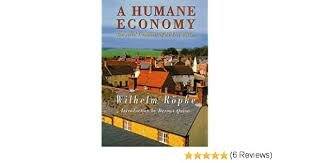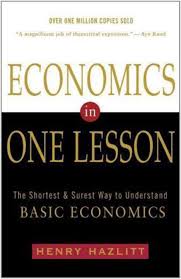How Rigged is the Economy against Individuals?
One of the prevailing themes in contemporary American public discourse is that the economy is irredeemably rigged against the little guy. The theory runs that the richest 1% have so much money that they are keeping the rest of us down.
That is a powerful story. It feeds on examples of cases where there are excessively wealthy people who do not have financial concerns that some anywhere close to the ones that ordinary citizens have. There are legitimate cases of harassment and discrimination prevent some people from achieving their potential.
However, the more complete story seems to be that despite inequalities in wealth, the potential for people to gain moderate levels of wealth is still present, even for people with median incomes.
In the FIRE community (Financial Independence/Retire Early) one of the more common targets for net worth prior to checking out of the workforce is $1M USD. Given that about 40% of American adults claim they can’t cover an unexpected $400 expense without borrowing or selling something, some argue that breaking into a seven-figure net worth is impossible.
Considering that the median household income in 2018 was estimated to be about $63K, which doesn’t include non-cash benefits like the company portion of insurance benefits, I’m more inclined to believe the people that tend to be optimistic about economic opportunities. Thomas Stanley and Sarah Stanley Fallaw’s recent book, The Next Millionaire Next Door, tends to support general optimism.
The first and most obvious allowance we must make in the whole debate, however, is that not everyone can get to the point of having a large net worth. There are people who have disabilities or medical conditions that will prevent them from engaging fully in the workforce and whose assets are regularly depleted by needed expenses. There are others who have, due to little or no fault of their own, been left in a precarious economic position because of poor choices by others or have had to leave a situation due to abuse. And, to be fair, half the households in the United States fall below the $63K income threshold, which makes it more difficult (though by no means impossible, down to a certain level) to create a large net worth.
But many in the top half of earners are not millionaires and never will be. In fact, according to Forbes in 2019, 18.6 million Americans have a net worth over a million. That means that approximately 1 in 17 people in the US are millionaires. That’s 5.6% of the population. Not bad when you think about it, but not as much as you would think.
The Next Millionaire Next Door is a follow up to Stanley’s 1996 book, The Millionaire Next Door, and basically asks if the economic system is really so rigged that no one can get ahead. He began the work with his daughter (Sarah Fallaw), and she completed the book alone due to his untimely death in 2015. The conclusion is that the basic patterns of behavior of millionaires has not changed in a fundamental sense in two decades.
The recipe for growing your net worth into the seven figures is the same as it was in 1996 and basically the same as it ever has been. Find work that uses your talents and do it vigorously. Live below your means by avoiding “status wars” with people at and above your income level. Invest your money; don’t just let it sit in a coffee can or a savings account. Do this for an extended period of time.
The upshot is that the path to becoming relatively wealthy is extremely simple. It has a lot to do with hard work and frugality. In fact, both the 1996 book and this latest book emphasize frugality as a central element of financial success. Even in 2019, the vast majority of millionaire’s surveyed had never spent more than $300 on a watch. Most of them drive Fords, Toyotas, Hondas, or Chevy’s that were purchased used, and very few of those surveys had ever spent more than $40,000 on a vehicle. Although they can “afford” to purchase more expensive products, they chose not to because the increase in value did not match the increase in price.
Also important to note is that those who accumulate wealth tend to be much more generous with their wealth. Individuals and families that have a high income, but a very low net worth do not tend to give much away. However, those that tend to save much of what they earn at whatever income level are, statistically speaking, more generous than your average American. Many of these next-door millionaires give away more than 5% of their income per year to registered charities, in addition to gifts to family.
To some this may seem counter-intuitive. Why should the savers be better givers? However, it makes sense when we consider the question from a different angle. High spenders don’t hang onto their money, but they have been mastered by their money and take pleasure in its spending. They, therefore, have a stronger love for money because of what it can get them. In contrast, the savers have mastered their money. They see it for its good beyond immediate consumption. They are also much more likely to want to see those funds invested into their community in a way that will cultivate hope for others.
The Next Millionaire Next Door leads me to believe that the majority of the “rich” are not the ones that are featured in the tabloid news or that are constantly scrabbling greedily for wealth. Rather, many of those who have obtained wealth in our society have, in some form or fashion, heeded the principles of 1 Tim 6:8–10:
But if we have food and clothing, with these we will be content. But those who desire to be rich fall into temptation, into a snare, into many senseless and harmful desires that plunge people into ruin and destruction. For the love of money is a root of all kinds of evils. It is through this craving that some have wandered away from the faith and pierced themselves with many pangs.
Though the political left, especially young socialists, tend to demonize those that have worked within the American economic system for decades to slowly accrue wealth, that demonization appears to be unwarranted. Those Christians who demean others, especially other Christians, for building businesses, working hard, participating in the community, giving regularly, and still managing to cultivate relative wealth are missing the fact that many of the next-door millionaires have done so by not loving money.
This is an interesting reversal. Next-door millionaires tend to be those who are generally content with food and clothing. They did not desire the wealth, but when they acquired wealth, they were good stewards of it. Statistically speaking, they give generously, live modestly, and work diligently. In fact, for most of those highlighted in this book, becoming wealthy was a secondary result of living wisely with those behaviors.
This sort of study might be helpful in overturning some negative perceptions and hostile rhetoric toward a portion of the population that has been diligent and, often, less self-interested than others in their pursuit of the good life. In this case, the good life being defined not as the unending accumulation of wealth, but of working hard, loving family and neighbor, and stewarding resources to have a reasonably secure future. In the United States that sort of lifestyle is often (but not always) rewarded with an abundance of resources over time.






















There’s no reason to doubt that Jesus was nailed to the cross. Ultimately, I trust what Scripture says about Jesus’s crucifixion because I also trust what it says about his resurrection. And that’s what we should be celebrating this week.